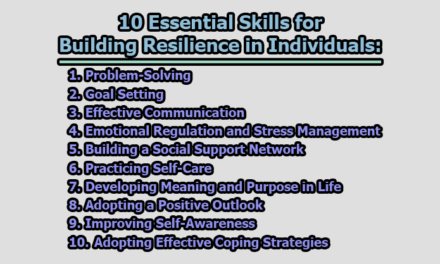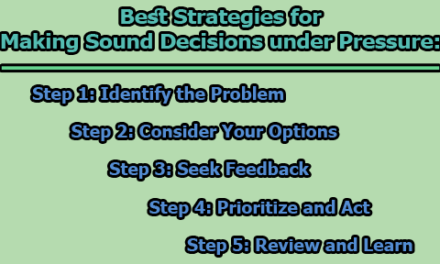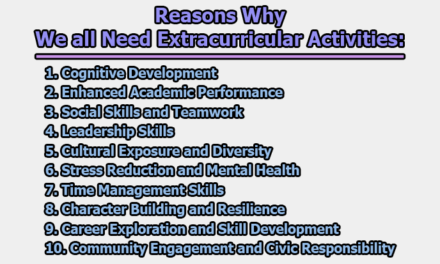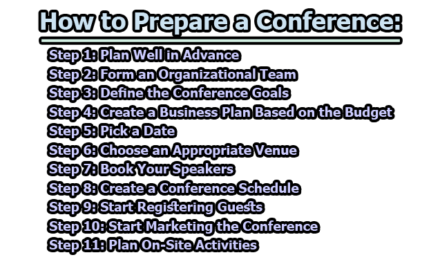10 Important Qualities to Look for in a Mentor:
In the journey of personal and professional growth, finding a mentor can be a transformative experience. A mentor is not just a teacher but a guiding light who imparts wisdom, knowledge, and support to help their mentees reach their full potential. The mentor-mentee relationship is built on trust, respect, and shared goals. However, not all mentors possess the same qualities that make them effective guides. To ensure a fruitful mentorship, it is crucial to look for specific qualities in a mentor. In this article, we will explore the 10 important qualities to look for in a mentor.
Quality 1: Investment in Education and Growth:
A mentor who genuinely values education and personal growth serves as an inspiration to their mentee. Such mentors are continually seeking opportunities to enhance their own knowledge and skills. They attend workshops, seminars, and conferences, and read extensively to stay updated with the latest developments in their field. This investment in education ensures that the mentor is well-informed and can provide valuable insights and up-to-date advice to their mentees.
Furthermore, a mentor’s commitment to their own growth sets an example for the mentee, encouraging them to adopt a lifelong learning mindset. This mutual passion for education fosters a deeper connection between the mentor and mentee, enhancing the overall mentorship experience.
Quality 2: Willingness to Connect and Network:
A great mentor understands the power of networking and the opportunities it brings. They should be willing to introduce their mentees to valuable contacts within their industry or field of interest. Through networking, a mentor can expose their mentee to diverse perspectives, career paths, and potential collaborators. The mentor’s network can act as a valuable resource for the mentee, providing access to job opportunities, industry insights, and a supportive community.
Moreover, a mentor who facilitates networking opportunities for their mentee demonstrates a genuine interest in their success beyond the confines of the mentorship relationship. This proactivity can significantly impact the mentee’s career trajectory and personal growth.
Quality 3: Availability to Devote Time:
Time is a valuable resource, and a mentor should be willing to dedicate theirs to the mentorship relationship. A mentor who is genuinely invested in their mentee’s success will make themselves available for regular meetings, discussions, and progress evaluations. This availability ensures that the mentor can provide timely guidance and support when the mentee needs it the most.
Additionally, a mentor who respects their mentee’s time and commitments creates a balanced and respectful relationship. They should be punctual for meetings, be mindful of the mentee’s schedule, and demonstrate reliability. This sense of mutual respect fosters trust and encourages open communication.
Quality 4: Active Listening Skills:
Effective communication is a two-way process, and active listening is a fundamental aspect of it. A mentor should possess excellent listening skills to fully understand their mentee’s goals, challenges, and aspirations. Active listening involves giving undivided attention, asking clarifying questions, and being empathetic to the mentee’s concerns.
When a mentor actively listens, they create a safe and supportive space for the mentee to express themselves honestly. This, in turn, allows the mentor to tailor their guidance to suit the mentee’s unique needs and circumstances. Active listening is a foundational skill for effective mentoring and builds a strong bond of trust and understanding.
Quality 5: Constructive Feedback:
Feedback is an essential part of the learning process, and a good mentor knows how to deliver it constructively. Constructive feedback involves highlighting both strengths and areas for improvement in a supportive manner. A mentor should provide actionable feedback that helps the mentee enhance their skills and overcome challenges.
The ability to offer constructive feedback requires empathy and sensitivity. A mentor should be mindful of the mentee’s emotions and deliver feedback in a manner that encourages growth rather than discouragement. When done effectively, constructive feedback empowers mentees to build on their strengths and tackle weaknesses with confidence.
Quality 6: Honesty:
Honesty forms the foundation of a successful mentor-mentee relationship. A mentor should be truthful and transparent in their interactions with their mentee. This includes providing honest feedback, sharing personal experiences, and addressing concerns openly. A mentor’s honesty instills trust and credibility in the relationship, allowing the mentee to seek guidance without fear of judgment.
In addition, honesty allows mentors to share their own mistakes and failures, emphasizing that setbacks are a natural part of the journey toward success. This vulnerability and honesty humanize the mentor, making them more relatable and inspiring to the mentee.
Quality 7: Positive Outlook:
A positive outlook is contagious and can inspire mentees to stay motivated and focused. A mentor who possesses a positive attitude even during challenging times can be a beacon of hope for their mentees. They encourage resilience, optimism, and a solutions-oriented mindset.
By fostering a positive outlook, a mentor helps their mentees see setbacks as opportunities for growth and learning. They instill confidence and belief in the mentee’s capabilities, encouraging them to take on new challenges with enthusiasm and determination.
Quality 8: Motivational Skills:
Motivation is the driving force behind personal and professional success. A mentor should have the ability to inspire and motivate their mentees to set ambitious goals and work hard to achieve them. They should encourage perseverance, determination, and a never-give-up attitude.
A motivational mentor knows how to recognize and celebrate their mentee’s achievements, no matter how small. They use positive reinforcement to boost the mentee’s confidence and inspire them to reach higher heights. A motivated mentee is more likely to stay committed to their aspirations and take proactive steps towards their desired outcomes.
Quality 9: Industry Knowledge:
A mentor’s expertise and knowledge in their respective industry are invaluable assets. Industry knowledge enables mentors to offer relevant insights, share real-life experiences, and provide informed guidance to their mentees. Mentors who possess deep industry knowledge are better equipped to navigate their mentees through the complexities and challenges of their chosen field.
A mentor’s industry knowledge can significantly impact the mentee’s career trajectory by offering insider tips, career strategies, and advice on emerging trends. This knowledge-sharing empowers the mentee to make informed decisions and be proactive in their career development.
Quality 10: Adaptability:
In a rapidly changing world, adaptability is a crucial quality for mentors. Industries evolve, technologies advance, and new challenges emerge. A mentor should be open to change, willing to learn new methods, and able to adapt their guidance to suit the evolving landscape.
An adaptable mentor encourages their mentees to embrace change and view it as an opportunity for growth and innovation. By demonstrating adaptability, a mentor exemplifies the importance of continuous learning and staying relevant in a dynamic world.
In conclusion, finding a mentor who embodies these qualities can be a life-changing experience, propelling mentees toward achieving their goals with confidence and determination. Likewise, mentors who embody these qualities will find fulfillment in nurturing and witnessing the growth of their mentees. The mentorship journey is a symbiotic relationship that benefits both parties and has the potential to create a lasting impact on individuals and industries alike. So, let us embrace the power of mentorship and inspire each other to reach greater heights in our personal and professional endeavors. The role of a mentor is not just to impart knowledge but to become a guiding light, illuminating the path to success and fulfillment.
Frequently Asked Questions [FAQs]:
What is a mentor, and why is mentorship important?
A mentor is an experienced and knowledgeable individual who guides and supports a less experienced mentee in their personal or professional growth. Mentorship is essential because it provides a structured learning experience, personalized guidance, and valuable insights that can accelerate the mentee’s development and help them achieve their goals more effectively.
How do I find a suitable mentor?
Finding a suitable mentor requires careful consideration. You can start by identifying your goals and areas of interest, then seek mentors who have expertise in those areas. Networking events, industry conferences, and online platforms like LinkedIn can be helpful in connecting with potential mentors. Additionally, seek recommendations from colleagues, friends, or mentors’ organizations.
What qualities should I look for in a mentor?
The article discussed ten important qualities to look for in a mentor, including investment in education and growth, willingness to connect and network, availability to devote time, active listening skills, constructive feedback, honesty, positive outlook, motivational skills, industry knowledge, and adaptability. A good mentor possesses a combination of these qualities to provide effective guidance and support.
How often should I meet with my mentor?
The frequency of mentor-mentee meetings depends on individual preferences and the specific goals of the mentorship. Regular meetings, such as once a month or bi-weekly, can help maintain continuity and progress tracking. However, the mentor and mentee should agree on a meeting schedule that works best for both parties.
What should I do if I am not satisfied with my mentorship experience?
If you are not satisfied with your mentorship experience, consider discussing your concerns with your mentor in an open and honest manner. Effective communication can help address any issues or misunderstandings. If the situation does not improve, you may want to consider seeking a new mentor whose approach aligns better with your needs and goals.
Can a mentor help with my career advancement?
Yes, a mentor can play a significant role in your career advancement. A knowledgeable mentor can provide insights into your industry, offer career advice, and help you identify growth opportunities. They may also introduce you to valuable contacts and networking opportunities that can boost your career prospects.
Is mentoring a one-way relationship?
No, mentoring is not a one-way relationship. While the mentor provides guidance and support, the mentee also has a responsibility to actively engage in the mentorship process. This may include setting goals, seeking feedback, and implementing the mentor’s advice to make the most of the mentorship experience.
Can a mentor help with personal development as well?
Yes, a mentor can assist with personal development in addition to professional growth. A skilled mentor can help you identify and overcome personal challenges, develop self-awareness, and improve interpersonal skills. A holistic mentorship experience can lead to improved overall well-being and personal success.
Can mentorship be done remotely or online?
Yes, mentorship can be conducted remotely or online through various communication tools such as video conferencing, email, or messaging platforms. Virtual mentorship provides flexibility and allows mentors and mentees from different geographical locations to connect and engage in meaningful mentorship relationships.
How long does a mentorship relationship typically last?
The duration of a mentorship relationship can vary depending on the goals and needs of the mentee. Some mentorships may last for a specific project or timeframe, while others can extend over several years. The mentor and mentee should agree on the duration and assess the progress periodically to ensure the relationship remains beneficial for both parties.

Library Lecturer at Nurul Amin Degree College










